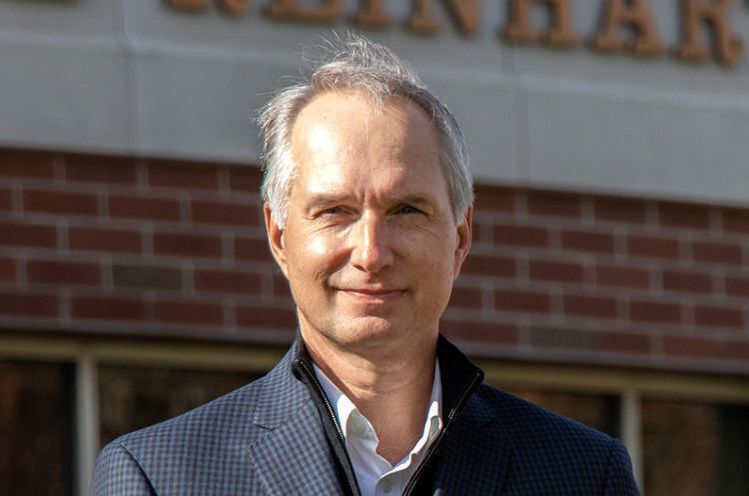Richard Kyte: We can no longer ignore struggling men and boys
The other day one of my social media acquaintances posted a news story about a hideous case of domestic violence. She asked, “What’s wrong with men, anyway?”
The question was rhetorical. She thought she knew exactly what is wrong with men. They are possessive, selfish, arrogant and violent. The story she posted merely illustrated the problem.
Men commit many more crimes, especially violent crimes, than women. Men commit seven times more murders. There have been 128 mass shooting in the United States since 1982, only three committed by women. Men make up 93% of the prison population.
For many (my social media acquaintance included), the explanation for all this is toxic masculinity. It is not that men are by nature violent; it is that we raise them that way. We need to bring up our children — and our boys especially — to be less aggressive.
It’s the wrong answer, using the wrong metaphor.
A powerful metaphor can take hold of our collective imagination, shaping our responses to people and events without thinking about whether the response makes sense. In the case of toxic masculinity, it is a metaphor that has corrupted the ways we think about gender.
Today, whenever a man behaves badly, the incident is sure to be regarded by some as yet another instance of toxic masculinity. As everyone knows, you rid the environment of toxins by removing them or diluting them to the point that they are no longer dangerous. Thus, if the misbehaving man is a public figure, there will be an expectation that he be removed and the force of his example diluted.
After actor Will Smith strode onstage and slapped Chris Rock at this year’s Oscars, he was banned from the Academy for 10 years. The dilution part came a day after the incident, when Smith issued an apology: “I am embarrassed and my actions were not indicative of the man I want to be. There is no place for violence in a world of love and kindness.”
The entire ritual is insincere. The members of the Academy who voted to banish Smith are the same ones who nominated him for an Academy Award for his portrayal of Muhammed Ali, the same ones who earn vast profits from the John Wick franchise. Smith is employed by Hollywood to tell stories about a world that is all too deficient in love and kindness, where violence is routinely used to bring some semblance of order. Nobody demanded that he stop making action pictures.
Notice the irony of issuing a public statement claiming “there is no place for violence” while the evening news celebrates the Ukrainians’ heroic resistance to the Russian invasion. Smith’s critics accuse him of not really meaning it. They are right. It’s a dumb thing for the star of the “Bad Boys” movies to say.
But here’s the point: He shouldn’t have to say it in the first place. Smith should have apologized for poor judgment and a lack of self-control. But that would not have been enough to save his public image. He was required to renounce aggressiveness, the willingness to use violence in any circumstances. He had to apologize for being the wrong kind of man.
We have a crisis of masculinity in this country, but it’s not because masculinity is toxic. It’s because we don’t know how to talk about being a man. In fact, we don’t even think it’s important.
One of the most surprising things I learned from Richard Reeve’s enlightening new book, “Of Boys and Men: Why the Modern Male Is Struggling, Why It Matters, and What to Do About It,” is that several states are not measuring how boys as a whole are doing in school. There is a long-standing assumption that of course boys are doing just fine.
But they are not doing just fine. Reeves, a senior fellow of economic studies at the Brookings Institution, has compiled convincing evidence that boys are falling behind at every level of education, from K-12 through college, in just about every subject area.
If the evidence showed merely that girls are catching up, or even that they are doing much better in some areas than boys, that would be a reason to celebrate. But that’s not what’s happening. Girls aren’t just catching up, boys are going backward. And that’s a reason for concern.
Reeves proposes that we recruit and train more male teachers, put more resources into technical education and have boys enter kindergarten a year later. All of these are thoughtful, practical suggestions, worthy of serious consideration.
But the crisis of masculinity is not confined to our schools. It has deep and broad cultural roots. More than anything, it is a crisis of virtue.
As a society, we are telling our kids how not to be a man and thinking that is good enough. But you cannot teach someone how to reach a destination by pointing out the wrong path. Our boys need positive, practical examples in their lives.
If we want our boys to grow up into responsible adults who are dependable and trustworthy, who can be good fathers, and neighbors and citizens, we need to teach them not just what is wrong with men but what is right with men.
Our boys need more than behaviors to avoid; they need heroic examples to which they can aspire. Now more than ever, we need good men to step up and show the way.

